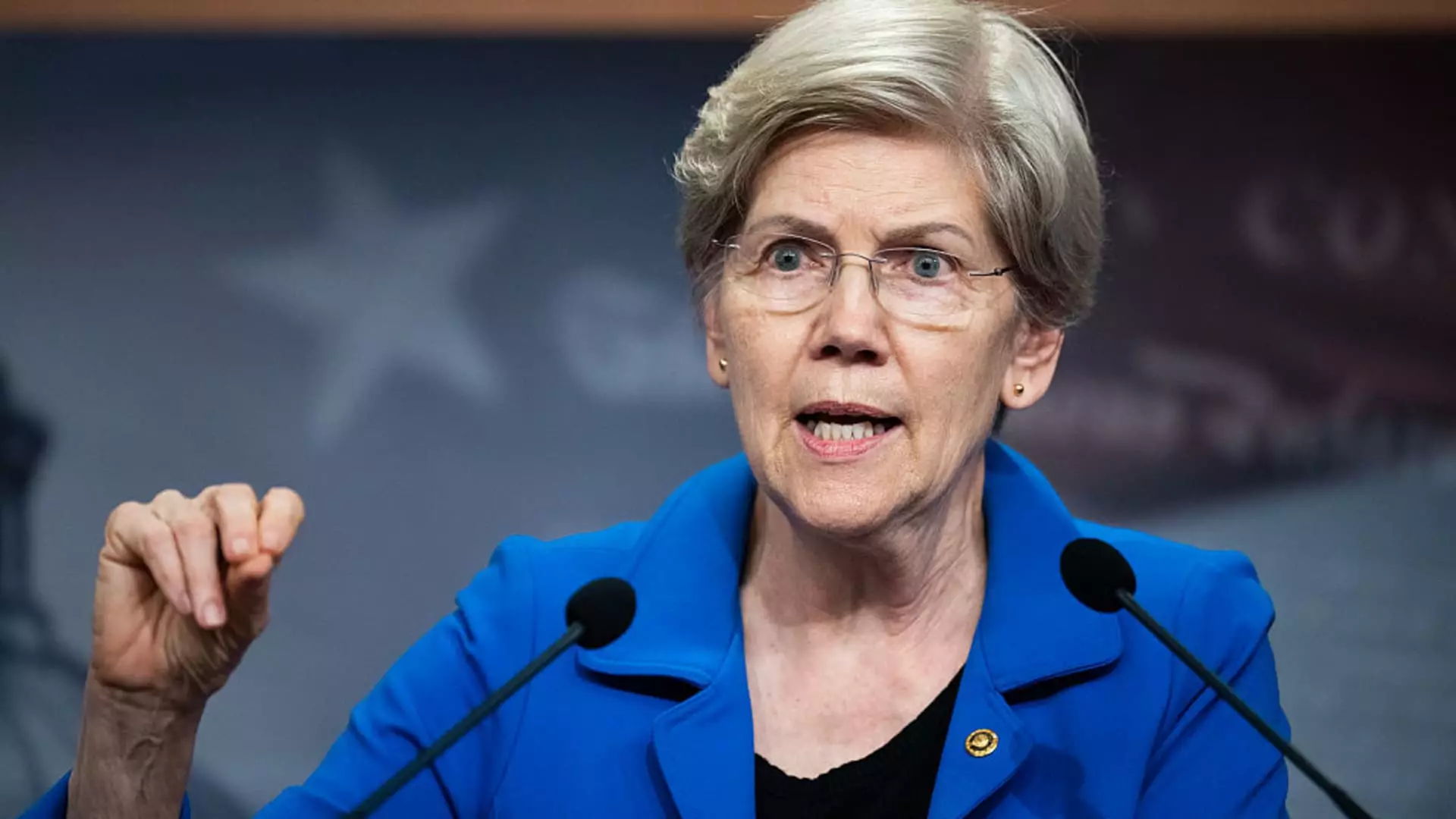The recent uproar among Democratic lawmakers regarding President Donald Trump’s trade policies unveils a critical narrative that must be examined closely. As lawmakers like Senator Elizabeth Warren and Representatives Judy Chu and Linda Sánchez put pen to paper, they articulate an alarming trend where the administration’s tariff-heavy approach appears more like a personal windfall for a select few rather than a protective measure for the American economy. The core of the concern is that these tariffs, supposedly aimed at protecting domestic industries, may instead be operating as an insidious scheme to enhance the fortunes of Trump’s allies, putting corporate interests before the broader well-being of American workers and consumers.
The Shadow of Corruption Lurking Beneath
This is not merely a partisan squabble; it is an ethical crisis that affects every American. The letter from the 47 legislators draws attention to how Trump’s tariffs create seemingly endless opportunities for corruption. By favoring political allies through selective exemptions—such as the recent decision to exclude smartphones from tariffs—there’s a palpable scent of quid-pro-quo wafting in the air. These tax decisions potentially enrich influential figures while placing unnecessary burdens on the average American, a point highlighted by the surge in stock prices for companies like Apple post-exemption. The blatant favoritism exhibited begs the question: who really benefits from these policies?
Beyond Policy: A Culture of Malfeasance
What makes the situation even more dire is the rampant possibility for insider trading that has emerged. Frequent shifts in trade policy create a volatile environment where those in the know can manipulate situations to their financial gain while ordinary citizens get left in the lurch. It paints a picture of a government more concerned with catering to its benefactors than upholding its duty to the public. The Democrats’ letter, while limited in its power to implement change, serves as a glaring spotlight on potential malfeasance that would have been unthinkable in a governance setting that values transparency and accountability.
Voices of Resistance Amidst Silence
As the minority party in Congress, the Democrats face significant limitations, unable to call for hearings or issue subpoenas to investigate these alarming trends. However, their written plea is a vital demonstration of resistance against what is perceived as a growing culture of corruption within the Trump administration. They are rightly demanding answers from critical figures like Commerce Secretary Howard Lutnick and Treasury Secretary Scott Bessent. In an era when economic policies should prioritize the people, these lawmakers are sounding the alarm bells about the nefarious potential lurking in policy details that are often obscured from public view.
As the narrative unfolds, the pressing need for accountability grows clearer. Unchecked power can lead governments down treacherous roads laden with conflicts of interest, and the warning from these lawmakers should not go unheeded. While the administration may attempt to brush off concerns as mere political posturing, the implications of their trade policy decisions could have far-reaching consequences that impact everyone, not just the elite few. The call for answers is more than just political grandstanding; it is a desperate plea for the integrity of our democracy and the future prosperity of our nation.

Leave a Reply